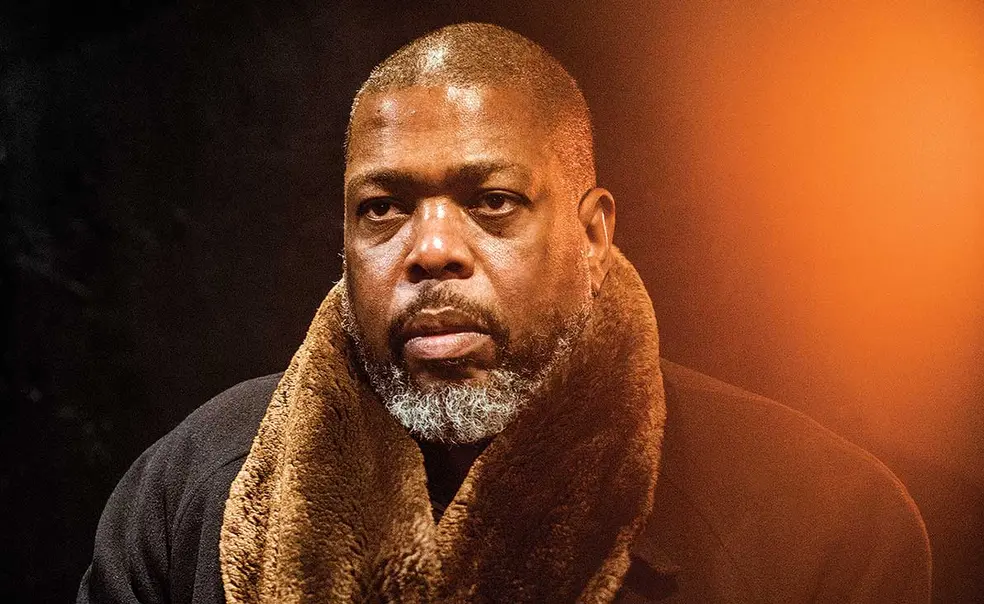Q&A: Hilton Als Offers a Theater Critic’s Point of View
Visiting scholar discusses writing and understanding queer history
Pulitzer Prize–winning theater and culture critic Hilton Als is the inaugural Presidential Visiting Scholar for the 2020–21 academic year at Princeton. The program was established to “recognize and support scholars who can contribute to the University’s diversity, broadly defined,” according Princeton’s announcement of Als’ appointment. In the fall the New Yorker writer mentored a handful of students. For the spring semester, he is teaching the course “Yaass Queen: Gay Men, Straight Women, and the Literature, Art, and Film of Hagdom.” Als spoke to PAW about a range of topics, including his thoughts on the ways the pandemic has impacted the arts and vice versa.
Where did your passion and interest in writing and criticism start?
It started when I was 8 years old. I come from a very large family, and writing was a way for me to get a word in edgewise and be part of the conversation while simultaneously being separate. It was also a way for me to work out what people were saying — to have some idea or sense of what was going on in my mind. When you write, you’re reflecting. I didn’t really start reading until I was about 10 years old, so I think writing was a real way of having language and speech.
How did your role at Princeton this year come about, and why did you decide to take it?
It’s a real gift from Tracy K. Smith [chair of the Lewis Center for the Arts] — a way for artists to be part of the Princeton community and also to do their work. She set it up so that it’s slowly introducing and hopefully integrating artists into the community. I feel incredibly fortunate that she offered me this opportunity, because it gave me time to think. The goal of teaching is that you really want to make a difference in students’ lives. The thing that I want mostly is to be present for the students and their development as minds and as artists.
What do you think makes a good play?
The playwright’s interest in the world that they’re creating, and using metaphors to talk about how we live now and how history has informed us. The playwright brings together the past, present, and future to make moments that are completely beautiful and transcendent. It doesn’t mean that the subject or the work itself has to be subconsciously beautiful. I think it has something to do with the ethos of the writer, that we want to be with them because there is something so generous and there’s a great love of humanity reflected in their work.
What works have inspired you lately?
I think Michaela Coel’s I May Destroy You is one of the most extraordinary things I have ever seen. You’ve got to see it. What’s happening in it is she’s creating a real world out of her imagination. It’s also a good time for reading. I have to give props to Jane Austen — I’ve been reading Mansfield Park and I’m struck again by her radicalism and identification with the poor. I really admire her for that.
Where did the idea for your spring-semester class come from, and what do you hope students take away from the experience?
It was funny. It was something that I always wanted to do. When I started teaching [in the late ’90s] it was a different time in terms of what was permissible politically and what students could do, so when Tracy asked what I liked to teach, this is something that has been in my consciousness for a long time.
Because of the limitations of their time, some of the writers I’m teaching couldn’t speak about their own queerness and did by code. So the code is a powerful part of what we’re discussing. How do people say the unsayable? I love the opportunity that this course gives me to dissect that a bit. How do we talk about being queer before and how do we talk about it now? Students very beautifully have to work with queer history to understand how did we get to a relatively queer freedom.
How do you think teaching this course is impacted by the pandemic and having to interact with students virtually?
It’s weird — because of Zoom you have to rely on a more personal intimacy with them. I think you have to rely on clarity of face and mind. Before, you could just talk and you would have those wonderful interruptions that happen and ideas that come out of conversations spontaneously. But because Zoom is so delayed, you have to kind of speak and wait, and that’s a big difference that you’re not really in dialogue with each other.
How has the pandemic impacted the arts?
It’s impacted the performing arts by prohibiting folks so they are not able to perform. That is a very sad thing. For writers, I think it took us a while to kind of find our bearings. We didn’t really know who we were. It took a minute for writers to understand who they were after this siege. So I think it took them about six months or so to feel that and write about it.
What role have the arts played throughout the pandemic?
Where would we be right now without music, books, and movies? Where would we be without stories right now? Stories elevate us and they give us a different view of ourselves. I think that it’s a wonderful way for us — unfortunately — to understand how essential stories are for us.
Interview conducted and condensed by C.S.












No responses yet